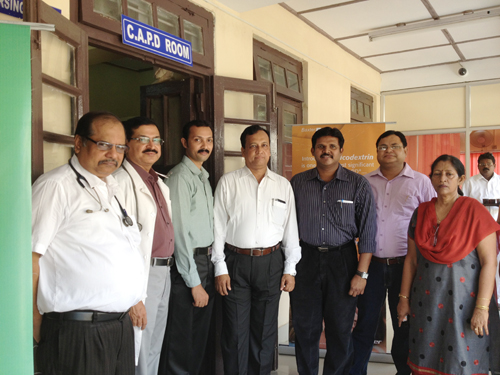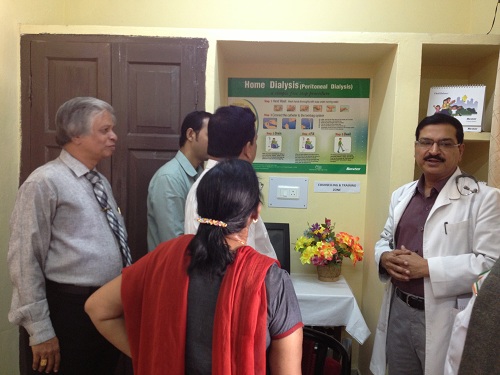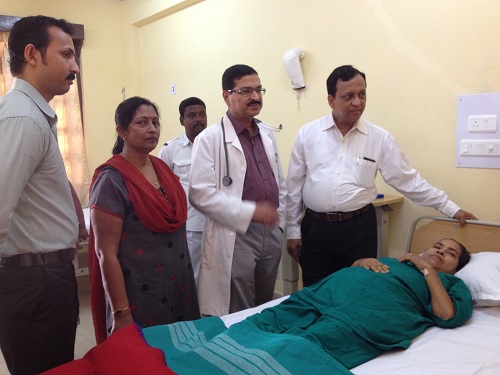Large Number of ESRD Patients Especially from Remote Areas Expected to Benefit: Dr. S.S. Singh



Port Blair, April 27: The C.A.P.D. Programme has been launched in the Andaman & Nicobar Islands today with the inauguration of C.A.P.D. (Continuous Ambulatory Peritoneal Dialysis) room in the Nursing Home of G.B. Pant Hospital, Port Blair by Dr. S.K. Paul, Director of Health Services. The C.A.P.D. programme is expected to benefit a large number of ESRD patients especially from remote Islands.
A patient suffering from E.S.R.D. (End Stage Renal Disease) has only two options i.e. either he undergoes kidney transplantation from related donor/ cadaver or he remains on Dialysis for rest of his life. Dialysis is of two types: Haemodialysis or peritoneal Dialysis. In Haemodialysis the patient’s blood containing toxic products of metabolism are passed through an artificial kidney (Dialyser) with the help of a machine (Dialysis machine) and the purified blood is pumped back to the patient’s circulation. Haemodialysis can be performed in the Dialysis Unit in the Hospital only and each session takes four hours. Patients of ESRD on Haemodialysis has to undergo Dialysis two – three time per week. The Dialysis unit at G.B. Pant Hospital has been functioning since 2012 and is performing more than 500 Dialysis in a month.
In C.A.P.D. the transport of peritoneal membrane of the Abdomen is utilized for Dialysis. The peritoneal membrane is a semi permeable membrane which can transport solute and water in and out of the fluids poured into it. In this form of Dialysis a catheter is placed inside the peritoneal cavity by a simple surgical procedure and after 2.3 weeks break-in-period the Dialysis is started with installation of CAPD fluid into the abdomen through the catheter. Usually in an adult 2 litres of fluid is run inside the abdomen and is allowed to stay for four hours. After four hours the fluid is drained out and a fresh fluid is run inside. Usually a patient of ESRD requires 3-4 such exchanges of 4 hours every day. The advantage is that the patient with the help of an attendant can do it himself at home. Only requirement is a clean room at home for the procedure. The patient can attend to his daily works, the child on CAPD can go to school, the housewife can perform her daily activities. At present there are six patients in these islands who are on CAPD. For most of these patients catheter was inserted at mainland and the prescription was given by the Nephrologist. With the launching of CAPD programme at G.B. Pant Hospital, patients from Islands are no longer required to go to mainland for CAPD catheter insertion and prescription. The catheter can be inserted by the trained surgeon at G.B. Pant Hospital, Port Blair and prescription of CAPD and follow up can be done by the trained physician and technician. CAPD fluid which costs around Rs. 20,000 - 25,000/- per month is supplied to the patients free of cost from the medical store of the hospital. Initiation of CAPD Programme in Andaman will benefit a large number of patients of ESRD requiring Dialysis belonging to other islands. Also patients residing at Port Blair who wish to go on CAPD can also do that, explained Dr. S.S. Singh, Medical Specialist, G.B. Pant Hospital, Port Blair during the launch programme today.